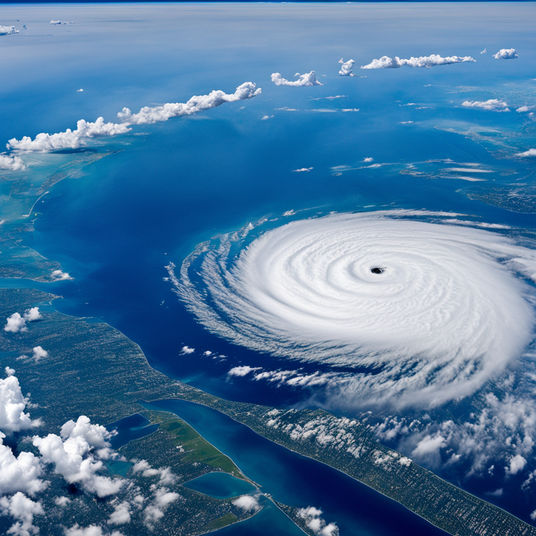Preparing for Hurricane Helene: Top 10 Steps for Floridians
Hurricane Helene is a powerful and rapidly intensifying storm barreling towards the Florida coastline, bringing with it the potential for widespread devastation.

With its strong winds, heavy rainfall, and life-threatening storm surges, Helene is a reminder of the unpredictable and severe nature of hurricane season. As Floridians brace for impact, it’s crucial to take immediate and thorough preparations to protect lives and property. Understanding the storm’s trajectory and potential impact zones can make all the difference in staying safe during this dangerous event.
2024 Atlantic Hurricane Season
The 2024 Atlantic hurricane season, running from June 1 to November 30, is forecasted to be significantly above normal, with an estimated 17 to 25 named storms, 8 to 13 hurricanes, and 4 to 7 major hurricanes expected. This outlook is influenced by several factors, including exceptionally warm ocean temperatures, the development of La Niña conditions, and reduced wind shear, all of which are conducive to storm (NOAA) (Climate Prediction Center)
The National Oceanic and Atmospheric Administration (NOAA) has assigned an 85% probability to the season being above normal, highlighting an increased risk for impactful storms (NOAA) (Climate Prediction Center). Additionally, a higher-than-average Accumulated Cyclone Energy (ACE) is anticipated, indicating a more active and potentially destructive season (Climate Prediction Center). As a result, preparedness measures are critical for residents in hurricane-prone areas, particularly in Florida.
For detailed updates and resources, you can refer to NOAA’s official hurricane season information (NOAA)
Here’s a list of the top 10 things Floridians should do to prepare for an approaching hurricane like Helene:
1. Create an Emergency Kit
Essentials: Assemble a kit with at least three days’ worth of water (one gallon per person per day), non-perishable food, medications, first aid supplies, flashlights, batteries, a multi-tool, hygiene products, and important documents in a waterproof container.
2. Secure Your Home
Protect Windows and Doors: Install storm shutters or board up windows with plywood. Reinforce doors, especially garage doors, which can be vulnerable to high winds. Bring in outdoor furniture, bikes, and other items that could become projectiles.
Consider these Expert Selected products
Review and Update Your Emergency Plan
Family Communication: Ensure every family member knows the evacuation plan and how to communicate if separated. Choose a meeting point and have an out-of-state contact person everyone can check in with.
4. Evacuate if Advised
Follow Official Orders: If local authorities recommend or order an evacuation, do so immediately. Know your evacuation route and have a full tank of gas. Plan for the care of pets, as not all shelters accept them.
5. Stock Up on Supplies Early
Avoid the Last-Minute Rush: Purchase supplies like bottled water, non-perishable foods, batteries, and gas before the storm approaches. Consider also getting a generator and extra fuel if possible.
6. Prepare for Power Outages
Backup Power: Ensure you have flashlights, batteries, and a fully charged power bank for electronics. If you have a generator, make sure it’s in good working order and that you have enough fuel.
7. Stay Informed
Monitor Weather Updates: Keep up with the latest weather reports and alerts through a NOAA weather radio, local news stations, or a reliable weather app. Staying informed will help you adjust your plans as necessary.
8. Prepare Your Vehicle
Plan to stay at home but if you must drive, consider the following:
Emergency Car Kit: Keep your car in good working order with a full gas tank, and an emergency kit that includes a first aid kit, blankets, non-perishable snacks, water, and a map in case GPS is unavailable.
9. Safeguard Important Documents
Waterproof Storage: Place important documents like birth certificates, insurance policies, passports, and property deeds in a waterproof container. Consider digital backups stored on a secure cloud service.
10. Communicate Your Plans
Stay Connected: Let friends and family know your plans, whether you’re staying put or evacuating. Keep your phone fully charged and have backup charging options available.
These steps will help ensure that you and your loved ones are as prepared as possible for Hurricane Helene.


